Indigenous Governance Database
constitutional reform committee
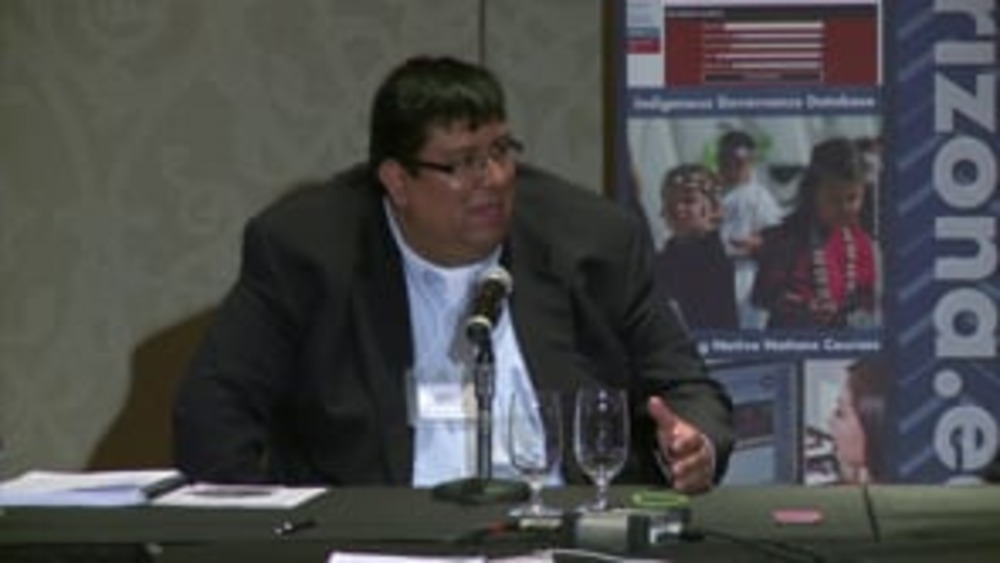
Anthony Hill and Angela Wesley: The Process of Constitutional Reform: The Challenge of Citizen Engagement (Q&A)
Presenters Anthony Hill and Angela Wesley field questions from the audience about the approaches their nations took to constitutional reform.
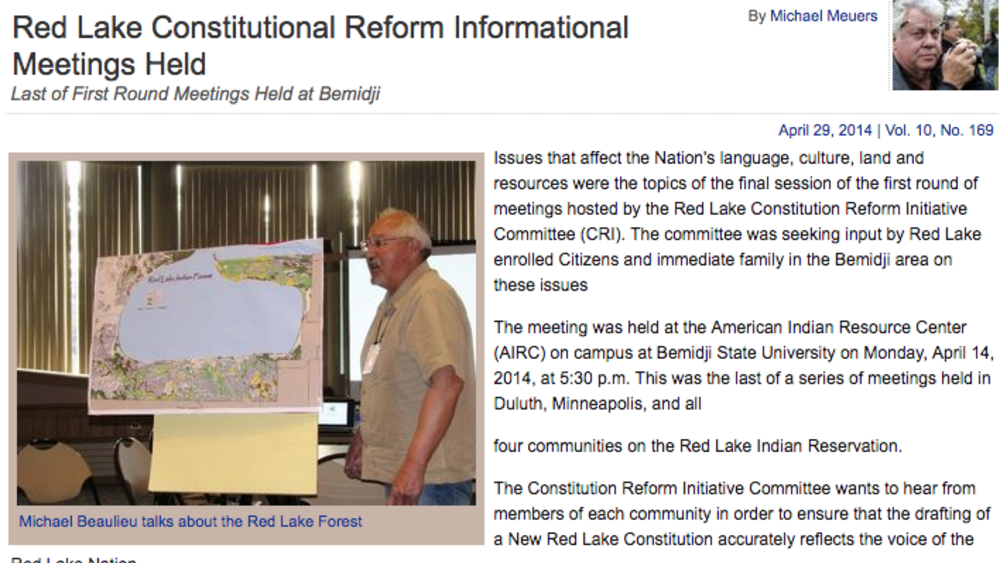
Red Lake Constitutional Reform Informational Meetings Held
Issues that affect the Nation's language, culture, land and resources were the topics of the final session of the first round of meetings hosted by the Red Lake Constitution Reform Initiative Committee (CRI). The committee was seeking input by Red Lake enrolled Citizens and immediate family in the…
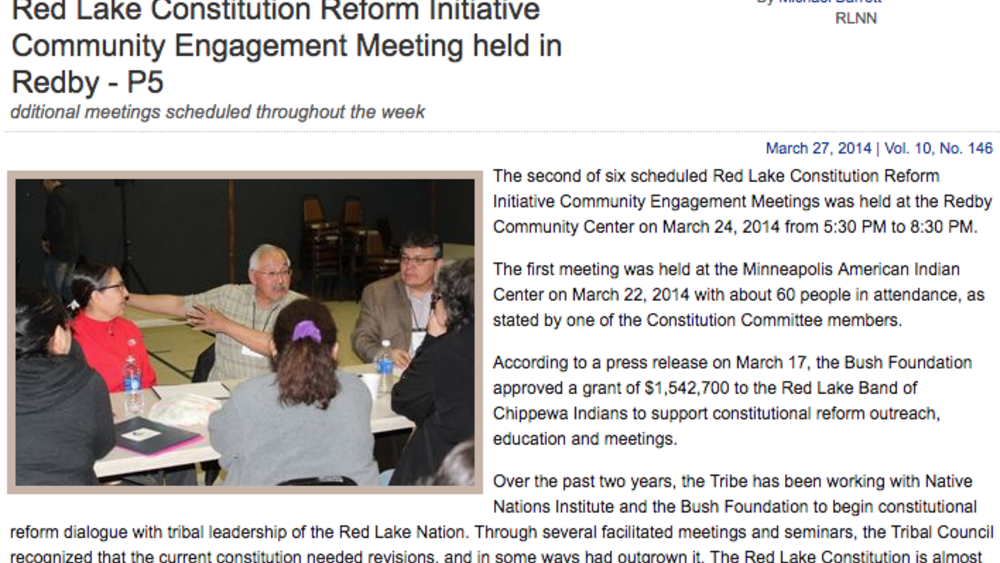
Red Lake Constitution Reform Initiative Community Engagement Meeting held in Redby
The second of six scheduled Red Lake Constitution Reform Initiative Community Engagement Meetings was held at the Redby Community Center on March 24, 2014 from 5:30 PM to 8:30 PM. The first meeting was held at the Minneapolis American Indian Center on March 22, 2014 with about 60 people in…
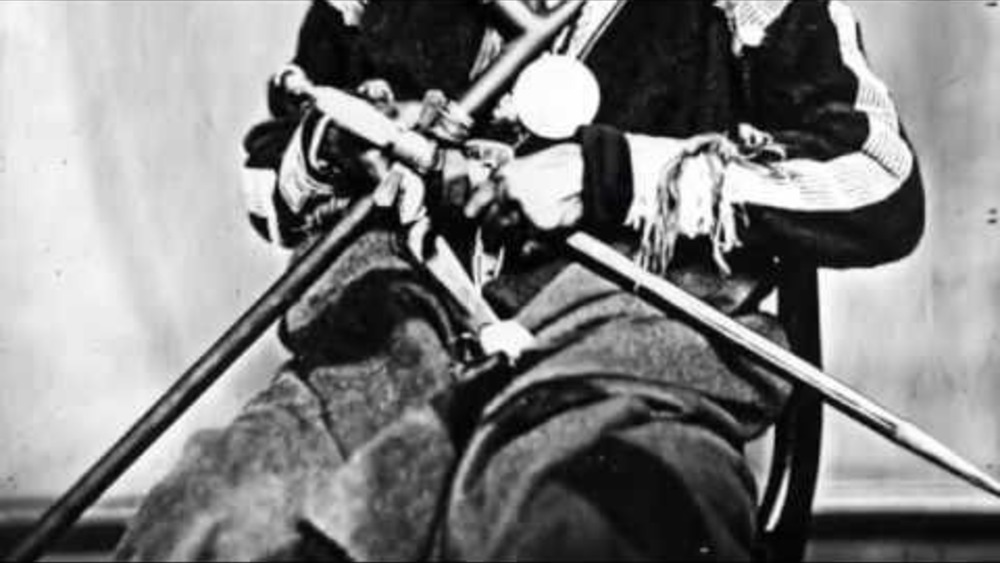
Indoodem: Who is a Red Lake Ojibwe, the Making of the Red Lake Constitution
Produced by the Red Lake Constitution Reform Committee, "Indoodem" provides Red Lake Nation citizens and others with information on clan systems and enrollment in the Red Lake Nation. The film documents the origins of blood quantum and traditional ways of knowing who was a part of the community.…
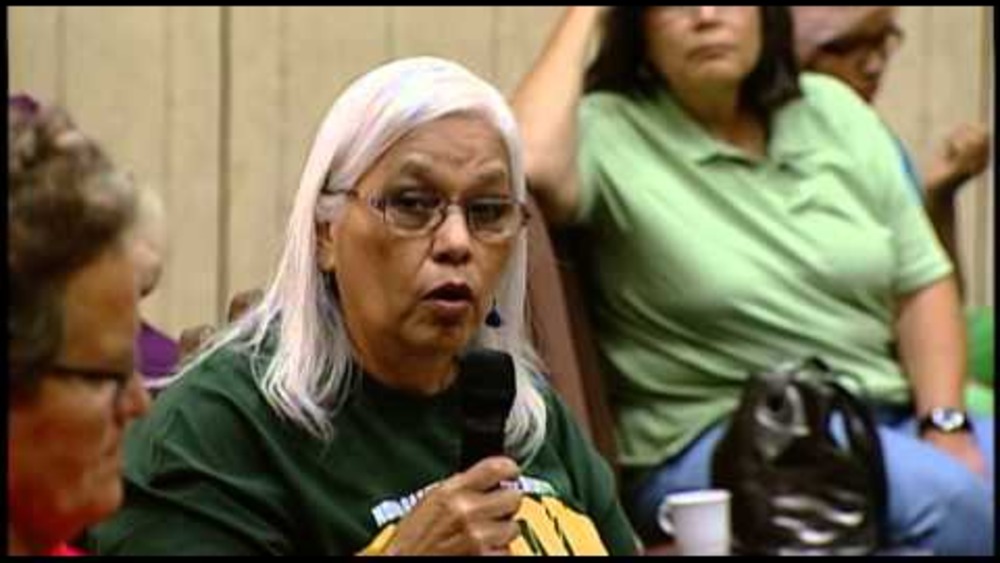
Truth To Tell: Community Connections - White Earth Constitutional Forum Part II
In collaboration with production partner KKWE/Niijii Radio, TruthToTell and CivicMedia/Minnesota traveled west on August 14, 2013, to the White Earth Reservation to air/televise the seventh in our series of LIVE Community Connections forums on critical Minnesota issues. Convened at White Earth's…
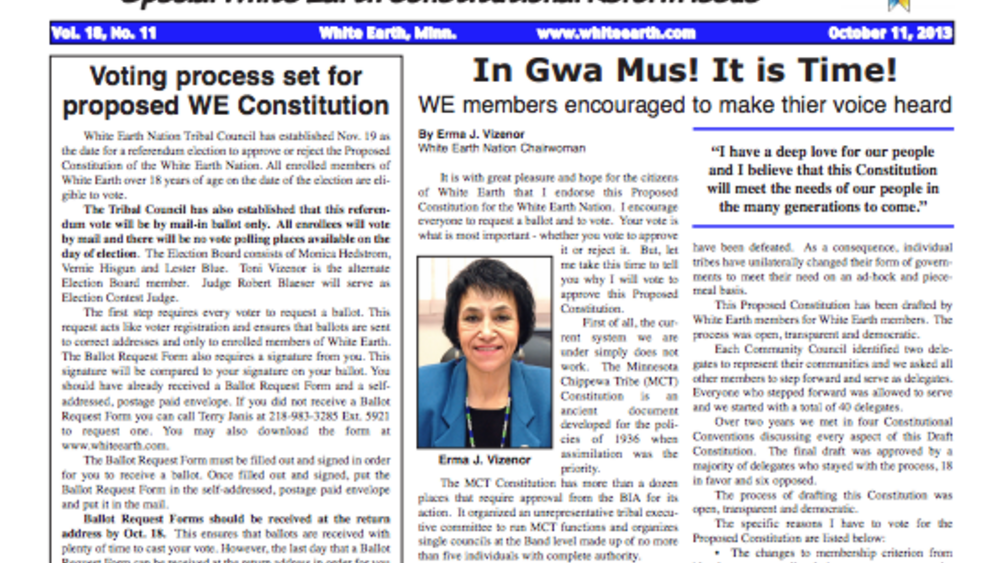
Special White Earth Constitutional Reform Issue
As the White Earth Nation prepares for a referendum election to approve or reject the proposed constitution, the Reform Committee has implemented a series of citizen engagement activities that includes a special issue of the tribal newspaper to inform citizens of the election date, proposed changes…
